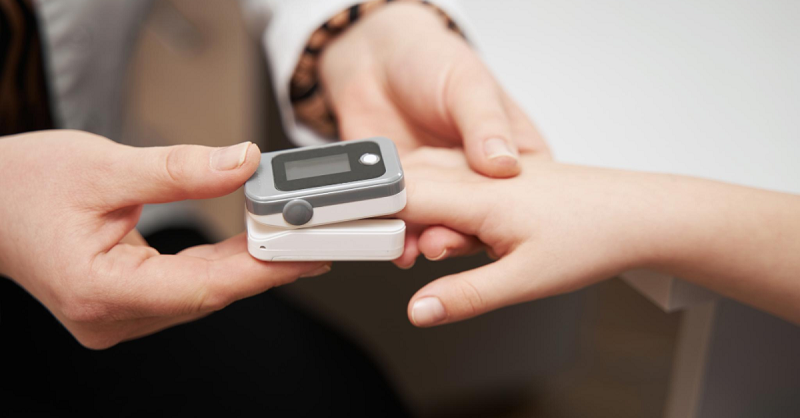Living with diabetes can be challenging, as it requires individuals to manage their blood sugar levels, make lifestyle adjustments, and maintain a balanced approach to their overall health. While the focus often centers on medical management, it is equally crucial to acknowledge the importance of pursuing hobbies and interests that bring joy and fulfillment. Engaging in activities that bring happiness not only enhances the quality of life for diabetic patients but also promotes overall well-being. This article explores the significance of pursuing hobbies and interests, provides actionable insights, and offers evidence-based advice for diabetic patients and their caregivers.
Hobbies and Interests: Enhancing Life Satisfaction
Hobbies and interests are activities that individuals engage in voluntarily for pleasure and personal enjoyment. These pursuits contribute to life satisfaction by providing a sense of purpose, fulfillment, and overall well-being. For diabetic patients, pursuing hobbies can be particularly valuable as it offers a positive outlet for stress relief, fosters a sense of accomplishment, and provides a distraction from the challenges of managing diabetes.
Psychological and Emotional Benefits of Hobbies
Engaging in hobbies has been shown to have numerous psychological and emotional benefits. Research indicates that participating in enjoyable activities can reduce stress, anxiety, and depression, while also improving mood and self-esteem. These positive psychological effects are especially relevant for diabetic patients, as they often face additional emotional challenges related to their condition.
The Impact of Hobbies on Physical Well-being
Hobbies and interests can also have a positive impact on physical well-being. Many activities involve physical movement and exercise, which are crucial for managing diabetes. Regular physical activity helps control blood sugar levels, improves insulin sensitivity, reduces the risk of cardiovascular complications, and promotes weight management. By incorporating hobbies that involve physical exertion, individuals with diabetes can enjoy the dual benefits of leisure and improved health.
Hobbies and Interests That Benefit Diabetic Patients
Physical Activities: Exercise as a Hobby
Exercise is a hobby that offers immense benefits for diabetic patients. It helps lower blood sugar levels, improves cardiovascular health, enhances insulin effectiveness, and contributes to weight management. Some suitable exercises for diabetic patients include brisk walking, swimming, cycling, yoga, and strength training. It is advisable to consult with healthcare professionals to determine the most appropriate exercise regimen based on individual health conditions and fitness levels.
Creative Pursuits: Exploring Artistic Outlets
Engaging in creative hobbies, such as painting, drawing, writing, or playing a musical instrument, can provide an emotional outlet and promote mental well-being. Artistic expression has been found to reduce stress, improve mood, and enhance cognitive function. Art therapy, in particular, has shown positive effects for diabetic patients by reducing diabetes-related distress and improving overall psychological well-being.
Cultivating Mindfulness: Meditation and Yoga
Mindfulness practices, including meditation and yoga, offer powerful tools for managing stress and improving overall well-being. Meditation involves focusing attention and fostering a non-judgmental awareness of the present moment, while yoga combines physical postures, breathing exercises, and meditation. Both practices have been associated with reduced stress, improved emotional balance, and better glycemic control in diabetic patients.
Culinary Adventures: Healthy Cooking and Meal Planning
Exploring culinary interests can be a rewarding hobby for diabetic patients. By learning about nutrition, experimenting with healthy recipes, and practicing mindful eating, individuals can better manage their blood sugar levels and overall health. Diabetic-friendly recipes that incorporate whole grains, lean proteins, fruits, and vegetables can provide a balanced and enjoyable approach to meal planning.
Practical Tips for Incorporating Hobbies and Interests into Daily Life
Time Management and Prioritization
Balancing hobbies with daily responsibilities can be challenging. Effective time management and prioritization are essential for incorporating hobbies into daily life. Setting aside dedicated time for hobbies, scheduling activities in advance, and finding creative ways to integrate hobbies into existing routines can help ensure regular engagement and enjoyment.
Identifying Personal Interests and Passions
It is important to identify personal interests and passions when selecting hobbies. Reflecting on individual preferences, exploring new activities, and considering past hobbies can help individuals discover fulfilling pursuits. By choosing hobbies that genuinely resonate with them, diabetic patients are more likely to experience a sense of joy and fulfillment.
Establishing Realistic Goals and Expectations
When pursuing hobbies, it is crucial to set realistic goals and expectations. Diabetic patients should consider their energy levels, physical limitations, and time constraints when engaging in activities. By setting attainable goals, individuals can experience a sense of accomplishment, avoid unnecessary stress, and sustain long-term engagement in their chosen hobbies.
Overcoming Barriers and Challenges
Managing Fatigue and Physical Limitations
Fatigue and physical limitations can sometimes pose challenges for diabetic patients. It is important to listen to the body’s signals and adjust activities accordingly. Incorporating rest periods, modifying activities to suit personal capabilities, and seeking professional guidance can help individuals overcome these barriers and continue to enjoy their chosen hobbies.
Financial Considerations and Budgeting
Some hobbies may require financial investments. It is essential to consider budgetary constraints and explore cost-effective options. Diabetic patients can search for affordable supplies, utilize community resources, join hobby groups for shared expenses, or explore free or low-cost hobbies such as reading, hiking, or gardening.
Seeking Support from Family and Friends
Family and friends play a vital role in supporting diabetic patients in their pursuit of hobbies. Loved ones can provide encouragement, understanding, and participation in shared activities. Open communication about personal needs and interests can foster a supportive environment that promotes the enjoyment of hobbies.
Building a Supportive Network and Community
Engaging in Diabetes Support Groups
Joining diabetes support groups can be immensely beneficial for individuals seeking a supportive network. These groups provide a platform to connect with others who understand the challenges of living with diabetes, exchange experiences and advice, and share hobbies and interests. Online communities, local support groups, and social media platforms can be valuable resources for connecting with like-minded individuals.
Utilizing Online Resources and Communities
The internet offers a wealth of resources and communities dedicated to hobbies and diabetes management. Online platforms provide access to hobby tutorials, forums for exchanging ideas, and educational materials. Websites, social media groups, and dedicated forums can connect diabetic patients with others who share similar interests and provide a supportive virtual community.
Caregiver Involvement and Support
Caregivers of diabetic patients can play an active role in supporting their loved ones’ pursuit of hobbies. By encouraging and facilitating engagement in enjoyable activities, caregivers can contribute to the overall well-being and quality of life of diabetic patients. Caregivers can also participate in hobbies together, fostering shared experiences and strengthening their relationship.
Pursuing hobbies and interests that bring joy and fulfillment can significantly enhance the quality of life for diabetic patients. Engaging in activities that promote physical, psychological, and emotional well-being not only aids in diabetes management but also allows individuals to cultivate a sense of purpose and satisfaction. By exploring different hobbies, incorporating regular physical activity, nurturing creativity, practicing mindfulness, and adopting healthy culinary habits, diabetic patients can lead fulfilling lives. Overcoming barriers, seeking support, and building a network of like-minded individuals can further empower individuals in their journey towards better health and happiness. Remember, diabetes does not define a person’s entire life; it is a condition that can be managed, allowing individuals to thrive and enjoy the things that bring them joy.




